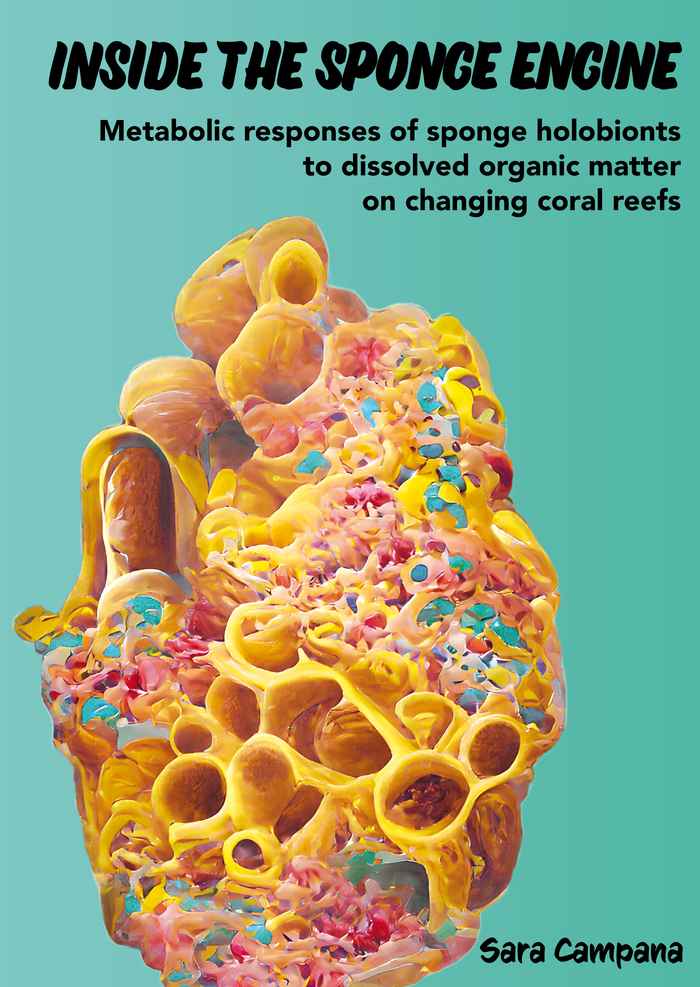PhD defence ceremony Sara Campana
- Date
- 23 September 2022
- Time
- 10:00
- Location
- Agnietenkapel

Inside the sponge engine: Metabolic responses of sponge holobionts to dissolved organic matter on changing coral reefs
Sponge holobionts, consisting of the animal host and its associated microbiota, play a key role in coral reef biogeochemical cycles by feeding on dissolved organic matter (DOM) and recycling it to higher trophic levels. The cycling of resources may largely depend on the stability of host-microbiome interactions and their susceptibility to altered environmental conditions, such as the ecological shift from coral-to-algal-dominance occurring on coral reefs. Given that macroalgae release higher quantities of bioavailable DOM than corals, it is important to understand if this ecological shift could affect the composition and the metabolic activity of different sponge holobionts. Using stable-isotope probing and amplicon sequencing we identified sponge-associated bacterial taxa that are metabolically active in DOM assimilation and found that the composition of the bacterial communities of different sponge species is host-specific and remains stable between reef sites with different coral-to-algae benthic cover ratios. Furthermore, we investigated the physiological (i.e., respiratory demand, carbon and nitrogen fluxes) and transcriptional responses of sponge holobionts with high and low abundances of associated microbes (HMA and LMA) after exposure to coral- and macroalgal-DOM for 6 h and 12 d. Our results show that both sponge types can opportunistically feed on different food sources without having to greatly adjust their metabolic pathways or associated bacterial communities to do so, and that the host identity and HMA-LMA status influence the metabolic strategies of sponge holobionts. Sponges are thus likely to persist without being significantly affected by the change in “fuel” available on coral reefs that are shifting from coral-to-algal dominance.
